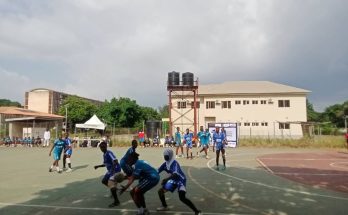By: Muhammad Oluwatimilehin
The Seals Cup is more than just a football tournament—it’s a stage where departmental pride, raw talent, and team spirit collide. Once a competition exclusive to the faculties of Social Science, Education, Arts, Law, and Science, the Cup has grown to embrace departments across the University of Ibadan. With that growth has come increased competitiveness, controversy, and evolving strategies for success.
So what exactly sets the top teams apart?
A Legacy of Belief and Breakthroughs
MBBS, long viewed as too academically demanding to compete athletically, only entered the Seals Cup about four years ago. Their initial campaign saw them reach the semifinals, giving them the belief to push further. Since then, they’ve transformed into a dominant force, lifting the Cup and establishing themselves as serious contenders every season.
Philosophy—once dubbed the Galácticos of the Seals Cup—also enjoyed a golden period, boasting stars like Awolowo and Prime. But with many of their best players now graduated, they’ve faced back-to-back group stage losses this year. Psychology is experiencing a similar dip, as the departure of their veteran core has left a void.
Chemistry Over Chaos
“You need to have that connection with other players on your team,” says Habeeb, a key figure in the MBBS team. “That’s what helps teams like IPE, MBBS, and POS. Most of these players play together regularly through inter-level games, friendlies, and internal tournaments like MBBS Ulympics. There’s no time to start learning that during the biggest football competition in UI.”
This chemistry—built through years of playing side-by-side—translates into instinctive passing, better positioning, and effective communication. It’s not just about playing with teammates, it’s about knowing how they play.
Building Around a Spine
VK, the current Sports Secretary of University of Ibadan Student Union and long-time IPE captain, offers a technical angle: “Successful teams usually have a core of at least four or five outstanding players that the team is built around. You don’t need 10 stars to succeed. With a good coach and proper team management, everything else should fall into place.”
VK also emphasizes the fragility of football dynasties in UI. “A team can be dominant for a few years, but once that golden generation graduates, there’s often a big drop-off. Many departments fail to blend upcoming players early because there’s pressure to always play the best—even if it means leaving potential future stars on the bench.”
Philosophy’s fall this year reflects that reality. “Awolowo was one of the best playmakers I’ve ever seen in UI,” VK says. “But the next in line wasn’t given enough minutes to grow. By the time the torch was passed, it became overwhelming.”
Experience Is Everything
Tunde, an MBBS student with years of involvement as both a player and coach, believes success often comes down to having the right people in the right roles. “Philosophy had their golden generation and won with that same group. IPE had a spine of great players like Bukunmi, Paragon, and DE. The reason ‘big teams’ have struggled recently is because their backbone has graduated. Meanwhile, MBBS continues to thrive with the likes of Habeeb, Karbon, and Istanbul playing their third straight tournament. Experience brings calm, leadership, and familiarity with the pitch.”
Quality Over Quantity
While some argue MBBS benefits from large class sizes and delayed graduations, Tunde offers a different take: “There are departments in Education with huge numbers but little success. It’s not about numbers—it’s about the quality of intakes. Some players, like VK or Prestige, broke into their departmental teams in 100 level. Talent finds its way, regardless of level or class.”Habeeb echoes this: “Although MBBS has the advantage of more class levels with some expected to have graduated still around, other departments also pick from Distance Learning or postgraduate students. Everyone finds ways to stay competitive.”
Adaptation Through Inter-Level Football
Departments with consistent inter-level competitions are better equipped to handle transitions. Coaches who scout young talent early and integrate them into the system prepare the team for life after graduation. “You reduce the shock,” Tunde says, “because your replacements are already used to the team’s rhythm before they’re asked to step up.”
The “Foreign Player” Factor
This year’s new rule allowing a department to bring in one player from a non-participating department has also added a new dimension. One standout example is Robinson, an Animal Science student currently starring for Vet Medicine. It’s a smart workaround that, when done right, can elevate a team’s performance without disrupting chemistry.
Final Whistle: No One Wins Alone
At the end of the day, the Seals Cup isn’t just about kicking a ball around. It’s about timing, teamwork, leadership, and building a system that can withstand the test of time—and graduation. Winning teams are those that blend talent with trust, passion with preparation. They don’t just show up. They build up.So next time you’re watching a team glide across the pitch or collapse under pressure, remember—it’s not magic. It’s management.




